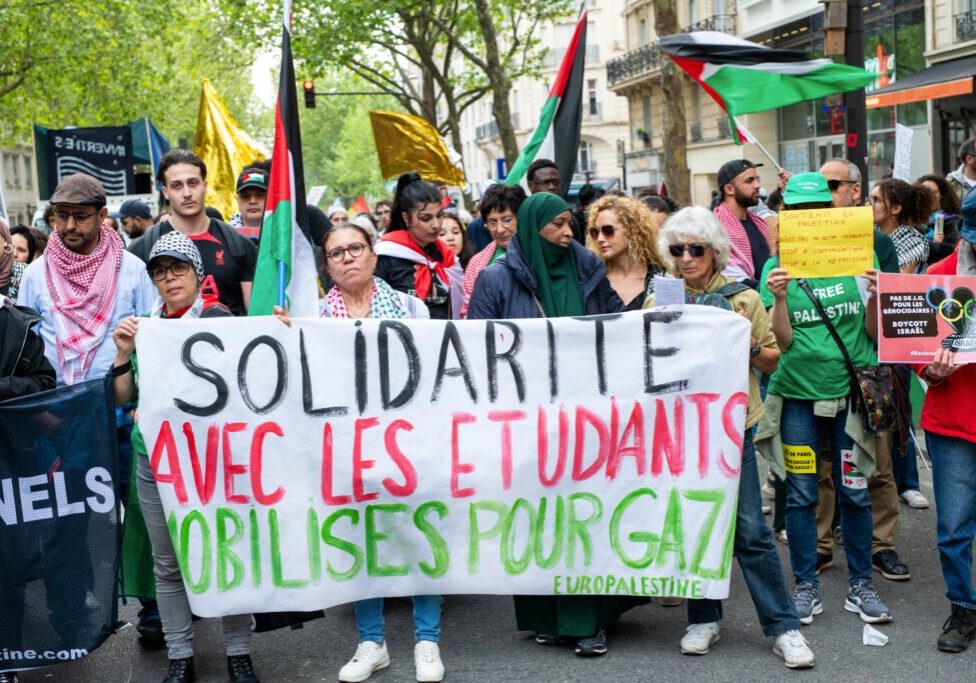Australia/Israel Review
Europa Europa: Of Church, Mosque and State
Sep 26, 2008 | Douglas Davis
Douglas Davis
Public sentiment is a wonderfully elastic commodity. Growing up in apartheid South Africa I was struck by the ability of my “white” compatriots to accommodate themselves to announcements of increasingly oppressive legislation.
The genius of the authorities was to not spring it on the public all at once. The shocks were administered, and the outrage absorbed, in stages. Detention without trial, for example, was initially limited to 90 days. Then, when the trauma had been absorbed, it was extended to 180 days. Finally, it was made indefinite. At that point, hardly anyone cared – except, of course, those in the firing line.
Over time, the public became inured to the tyranny. And those who were still not convinced of the need for draconian measures were given an ominous message: if you’re innocent you have nothing to worry about. Guilt, like outrage, became a self-selecting condition.
I was reminded of this conditioning process when a succession of events occurred in Britain last month. Each might once have provoked outrage. In the event, they were met with resigned apathy, a dramatic reduction in public outrage.
First was the conviction of four young British Muslim extremists for plotting a bombing campaign that would have claimed victims on an industrial scale (the plot was compared to 9/11 and the arrest of the men led to the ban on carrying liquids on aircraft).
Second was a television documentary, filmed by an undercover Muslim woman at London’s supposedly moderate Regent’s Park Mosque. At study groups ostensibly aimed at fostering co-existence, a female preacher was secretly recorded exhorting her class to separate themselves from non-Muslim society and hate non-Muslims. “Kill him, kill him. You have to kill him, you understand. This is Islam.”
At the mosque’s bookshop, the reporter discovered a collection of books and DVDs promoting extremist, antisemitic, misogynistic and intolerant messages. One DVD told Muslims to regard non-believers as “evil, wicked, mischievous people – you can see the evil in their face,” while Jews were said to have “an abominated, filthy, disgusting gross belief – their time will come…”
The third event of the month was a cluster of despairing complaints, apparently unconnected, by senior Anglican clergymen – all of whom were, incidentally, born outside Britain. The plaint: Christianity in Britain was being marginalised.
The Bishop of Rochester, Dr. Michael Nazir-Ali, warned that radical Islam was threatening to fill the moral vacuum caused by the decline of the Church and of Christian values. The bishop, who hails from Pakistan, declared that the waning influence of Christianity had created a lack of principles which, in turn, had opened the door for radical Islam to push its “comprehensive” claims.
Another anguished note was struck by the Archbishop of York, Ugandan-born Dr. John Sentamu, who lamented that Christian groups were regarded as “tainted” by the British government and were being starved of funds for charitable work. His comments followed an independent report which concluded that the government had no interest in the Church of England’s contribution to society (the report, by the Von Hügel Institute at Cambridge University, condemned the government’s “religious illiteracy”, accusing politicians of ignoring the work of Christian groups while “focusing intently” on Muslims).
Then came the Primate of Nigeria, Peter Akinola, who declared that while England was perceived as a “Christian nation” there was a constant effort to “throw God out of the system.” This, he noted, had created “a huge religious vacuum… that is now being filled by Islam.”
The fourth shock of the month came quietly and rather insidiously. It was the revelation that the British government has agreed to grant the rulings of Sharia courts the full force of British law. Five Sharia courts have already been established to hear a range of civil and criminal issues; two more are being planned.
Cases already dealt with by Sharia courts over the past six months have ranged from issues of inheritance and divorce to six cases of domestic violence (after discovering that their accusations would be adjudicated by Islamic courts, all of the women withdrew their complaints to police, who therefore halted investigations).
The fact that Islamic courts are now functioning in Britain with full judicial authority should not have come as such a surprise. No less than the Archbishop of Canterbury – the highest-ranking member of the Anglican Church – had publicly conceded earlier this year that the establishment of Sharia law in Britain “seems unavoidable”.
It is ironic that the image of 21st century missionaries is not that of hardy English churchman trudging from village to darkest African village, but rather African clergymen trudging from door to English suburban door to save the heathen masses.
I found myself consciously suppressing an impulse to gnash my teeth and cry rage in unison with the despairing clerics. But then I remembered that it is the Anglican Church itself, supine and submissive, which is largely responsible for the degradation of its role and its incontestable irrelevance. What did the good clergymen expect after spending much of the past half-century rolling over in the face of tough moral issues?
Meanwhile, the British public seems to have become so inured to the advances of Islam that the decision to outsource the administration of its justice – and effectively incorporate chunks of Islamic jurisprudence into British law – has passed almost without comment.
Tags: Europe






